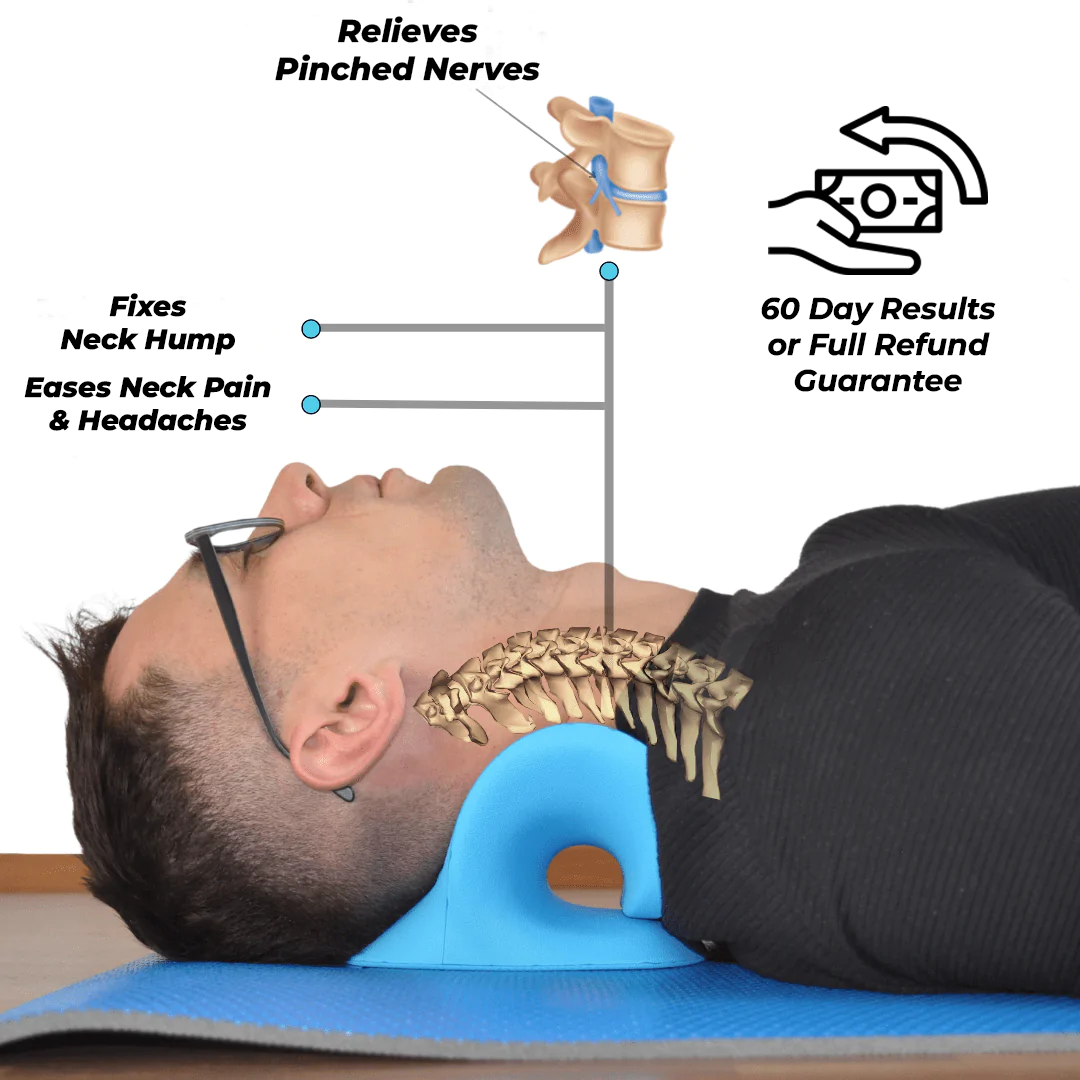Why the Neck Cloud is a Must-Have for Alleviating Neck Tension
Why the Neck Cloud is a Must-Have for Alleviating Neck Tension
Blog Article
The Impact of Anxiety on Neck Discomfort: Techniques for Reducing Tension and Discomfort
In today's busy world, it's clear that stress and anxiety has actually come to be a common aspect in the start and worsening of neck discomfort. The complex partnership in between anxiety and muscle mass stress typically leaves individuals looking for alleviation from the pain that occurs. By checking out targeted approaches intended at lowering stress and advertising relaxation, one can start to deal with the source of neck pain and work towards an extra balanced state of well-being. Join us on a journey to untangle the effect of stress on neck pain and find efficient ways to reduce discomfort and boost overall top quality of life.
Recognizing Stress-Related Neck Discomfort
Stress-related neck pain can materialize as tension, rigidity, or discomfort in the neck and shoulder area. The link in between stress and neck discomfort exists in the body's physiological action to anxiety, which can result in muscle stress and rigidity in the neck muscle mass.

Identifying Common Stress Locations
Often experienced by people under stress, stress locations in the body can provide important understandings into the physical symptoms of emotional pressure. One usual stress area is the neck, where tension usually manifests literally. Tension frustrations, stiff neck muscle mass, and restricted array of motion prevail symptoms of stress-related neck stress. The shoulders are an additional usual location where tension gathers. Tension can create the muscle mass in the shoulders to tighten, causing pain and discomfort. Additionally, the upper back is susceptible to tension build-up, specifically in individuals that experience chronic anxiety. Poor pose and extended resting can intensify stress around. The jaw is also an usual place for stress-related tension, as lots of people clench their jaw or grind their teeth when emphasized. Recognizing these usual tension locations can aid people acknowledge the physical indicators of tension and take steps to address them prior to they escalate into persistent discomfort or pain.
Implementing Relaxation Strategies
To efficiently handle stress-related tension in the body, implementing relaxation methods is crucial. Relaxation methods are useful tools for reducing neck pain triggered by stress and anxiety. Deep breathing workouts can assist soothe the mind and unwind stressful muscular tissues in the neck and shoulders (neck cloud). Practicing mindfulness meditation can likewise be advantageous in alleviating tension and promoting leisure. Dynamic muscular tissue relaxation, where you methodically tense and after that kick back various muscle teams, can release built-up stress in the neck area. In addition, activities like yoga exercise and tai chi incorporate both physical activity and relaxation, making them efficient techniques for minimizing stress and anxiety and neck pain. Taking normal breaks throughout the day to stretch and loosen up can stop muscle mass rigidity and tension from accumulating. By including these leisure strategies into your daily regimen, you can assist handle stress degrees, minimize stress in the neck, and relieve pain related to stress-induced neck discomfort.
Incorporating Self-Care Practices
Incorporating self-care practices is essential for keeping overall health and handling stress-related neck discomfort properly. Taking part in normal exercise, such as gentle stretching workouts or yoga, can help reduce tension in the neck and shoulders. Exercising good pose throughout the day and taking frequent breaks from extended sitting or look at here now screen time can also prevent strain on the neck muscle mass.
Furthermore, prioritizing adequate sleep and establishing a regular sleep regimen can contribute dramatically to reducing stress and anxiety levels and advertising leisure. Creating a soothing going to bed routine, such as reading more a book or taking a cozy bathroom, can help prepare the body and mind for peaceful sleep. Additionally, keeping a balanced diet regimen abundant in nutrients and staying moistened can sustain general health and wellness and lower inflammation that may intensify neck pain.
Incorporating mindfulness techniques, such as deep breathing workouts or reflection, can help take care of anxiety and advertise leisure. Taking some time for oneself, taking part in hobbies, and setting boundaries to secure individual time are additionally crucial aspects of self-care that can add to lowering stress and anxiety and alleviating neck pain.
Seeking Professional Aid
Exactly how can people successfully attend to relentless neck pain that is influencing their life and well-being? Seeking expert aid can be an important action in handling and relieving neck discomfort. Consulting with medical care professionals such as chiropractors, physical specialists, or orthopedic professionals can give important insights and customized treatment strategies. These experts can carry out comprehensive analyses to diagnose the underlying causes of neck discomfort and suggest appropriate treatments.
Chiropractic doctors specialize in back control methods to enhance alignment and reduce stress in the neck location. Physiotherapists use targeted exercises and stretches to reinforce muscle mass, enhance versatility, and enhance general neck feature. Orthopedic professionals can give sophisticated medical treatments such as shots or surgical options for extreme instances of neck pain.
Conclusion

Stress-related neck discomfort can manifest as stress, tightness, or discomfort in the neck and shoulder area. The connection in between stress and neck pain lies in the body's physiological feedback to stress, which can result in muscle mass tension and tightness in the neck muscle mass. Tension frustrations, rigid neck muscles, and limited range of movement are common signs of stress-related neck tension. By integrating these relaxation strategies into your everyday routine, you can aid manage anxiety levels, lower stress in the neck, and reduce discomfort associated with stress-induced neck discomfort.

Report this page